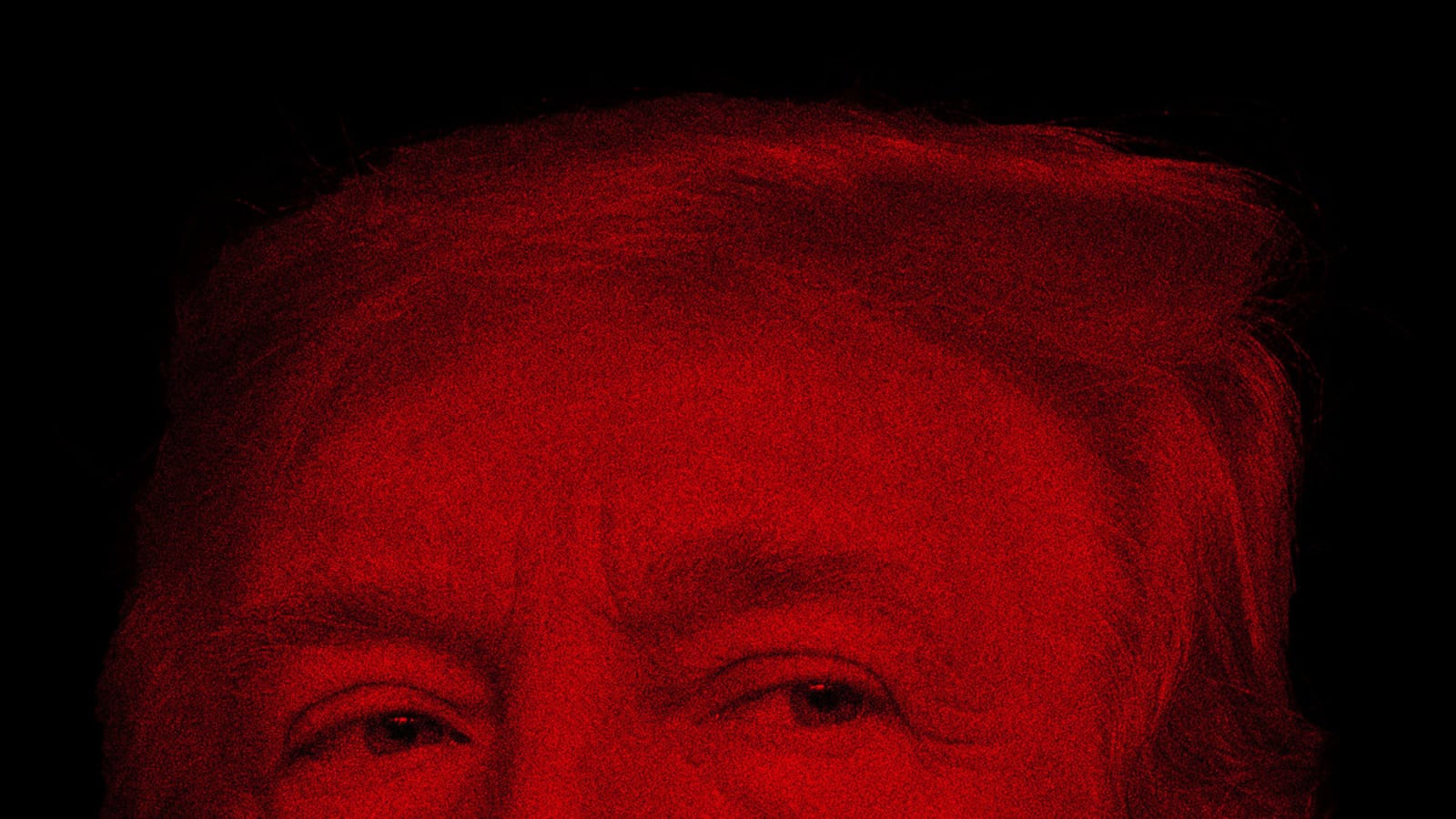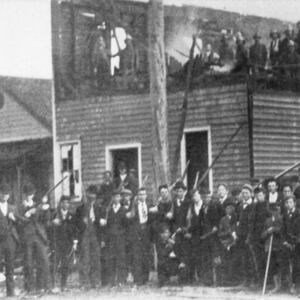The stories out of New Mexico are harrowing.
Semi-automatic rounds ripping through officials’ homes. Public servants fearing for their lives. Children waking to the sound of gunfire.
It’s nightmarish and would be even more shocking if it wasn’t so terribly predictable.
Allegations that failed Republican candidate Solomon Peña hired men to fire on several homes of Democratic politicians made for sizzling headlines, but for anyone paying attention it was hardly a surprise. Our political environment has been primed and readied for this kind of terrorism, and Peña’s apparent motivation—that his 40-point electoral loss was “rigged”—has become an increasingly familiar chorus.
Undoubtedly this has been inspired in part by former president Donald Trump. It is undeniably true that Trump’s strain of election denial has played a role and helped create an anti-democratic movement in the United States. His insistence that the 2020 election was stolen from him revealed a desire among his base to believe that any contest that didn’t explicitly follow their whims could be dismissed as invalid.
That notion has been extremely dangerous, and helped inspire the attempted coup of Jan. 6, 2021, but equally treacherous has been his fear-mongering. Since he appeared on the modern political scene, hawking dangerous Birtherism to the delight of Fox News’s audience, he has profited off repeating and creating paranoid narratives that also radicalize his followers. When I used to report from his rallies and he would tell his supporters to rough up protesters, it was always with the understanding that it was about more than letting loose their rage: it was about striking out against a larger conspiracy. And they were more than willing to openly talk about rounding up the “conspirators,” imprisoning them, and even murdering them in cold blood.
But it is a convenient fiction that this environment was solely the work of Trump. Political violence is older than this country, and its origins and inspirations are traceable. Whether it is the colonization of the continent, the enslavement of millions, or even the Civil War itself, oppression and violence have been hallmarks of this culture. Even election-denying is part of our history. The Confederacy, after all, was an expression of the South’s refusal to accept a loss of power at the ballot, and the Ku Klux Klan was largely formed to undermine democracy during Reconstruction. Decades later, in 1898, an avowedly white supremacist mob in Wilmington, North Carolina, overthrew local government and massacred African Americans in an orgy of racial violence.
For context, we must also understand that years and years of Jim Crow and the apartheid South were rooted in these same fears and ideas. The brutalizing of Civil Rights protesters in the streets, as well as political murders, assassinations, and bombings, were all symptoms of the problem and as intertwined with American history as the signing of the Declaration of Independence.
Simply put, this problem did not begin with Donald Trump, and it will not end with him. Expecting prosecution for any number of his crimes and corruption is one thing, but believing it will somehow lower the temperature or prevent these tragic events or their escalations is not only foolhardy but exacerbates the problem.
Democracy itself, and the pursuit of better and fairer representative government, is inextricably linked with attacks on democracy because to carry out the will of the majority is to put the interests of the minority at risk. This is complicated, and much of political theory wrestles with the problem. It is the focus, after all, of much of The Federalist Papers. But what we must also understand is that in a society where concentrated wealth, white supremacy, and patriarchal dominance go hand-in-hand, the chances for political violence increase in tumultuous times.
In both Peña’s and Trump’s case, nothing could have convinced them the election was lost. No verified result, no empirical evidence could have stemmed the outrage. The entitlement that corresponds with patriarchal dominance and white supremacy is immune to logic or facts. And it is this relationship between power, control, and violence that we must recognize.
The Republican Party, the MAGA movement, and a whole host of politicians, personalities, grifters, and authoritarians are animated by a desire to maintain or expand power. When people turn on Fox News or log into their favorite Right-Wing website or social media platform, what they’re being told is that someone out there is trying to get them. They’re coming for their possessions, their wealth, and especially their power.
It is an incredibly lucrative business with potent political appeal. This new era, both embodied and emboldened by Trump and his cadre of cronies, has made it abundantly clear that paranoid narratives, conspiracy theories, and fearmongering are surefire ways to pad people’s pockets and rachet up victories. But when the ballots are counted and the results run counter to the radicalized base’s expectations, it is a veritable powder keg waiting for a spark.
Unfortunately, this problem will only get worse if we continue to expect a fever to break or for one man’s declining political fortunes to serve as the cure-all. We must reinforce our democratic institutions and protect the same populations who have suffered the brunt of authoritarian movements in the past, including the same communities that were enslaved, exploited, and subject to terrible violence. And these abuses, throughout time, only grow worse when it becomes clear institutional opposition is unwilling to intercede.
It is not enough to shake our heads when a radicalized person breaks into a home and beats the spouse of a political figure with a hammer. To wonder “who would do such a thing?” when a man carries a semi-automatic into a public place and carries out a massacre because he is worried about “white replacement.” To expect any of these atrocities to be the last as long as we do not re-invest in democracy. Because, like it or not, we are in this fight, and we simply cannot afford to lose.
Jared Yates Sexton is the author of “The Midnight Kingdom: A History of Power, Paranoia, and the Coming Crisis” and co-host of The Muckrake Podcast. You can follow him on Twitter @JYSexton.






